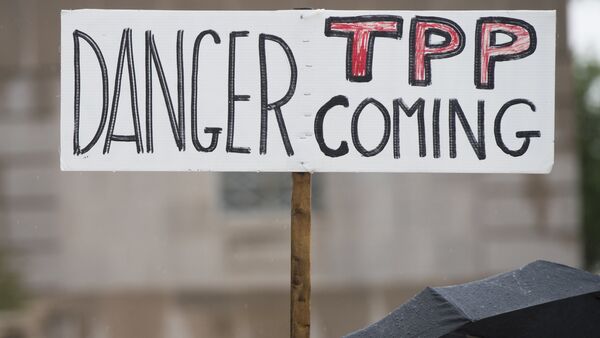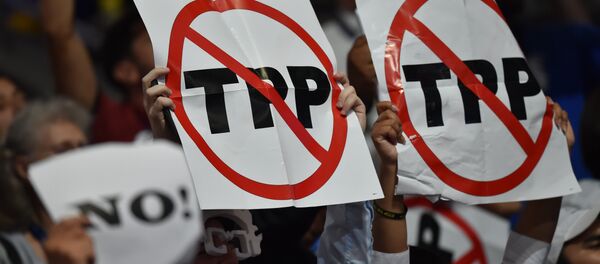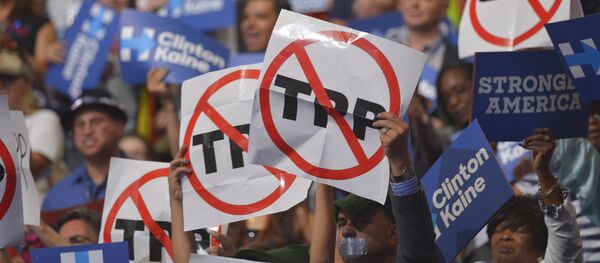MOSCOW (Sputnik) — On Monday, Trump said that the United States would withdraw from the TPP agreement on the first day of his tenure as president in January.
Alexander Gabuev, Chair of the "Russia in the Asia-Pacific" program at the Carnegie Moscow Center, considers that an agreement on TPP in its current form was likely to be abandoned, as its implementation was impossible without participation of the United States.
"There is nothing to quit as the agreement is still not ratified. Agreement is impossible without the United States, while US Congress has no intention to ratify it. Judging by the fact that [Democrat nominee] Hillary Clinton spoke out against the TTP, and Trump took a sharply negative position [regarding the deal], while the Republicans have a majority in both houses of the Congress, the agreement is unlikely to be ratified. Therefore, TPP in its current form is likely to be buried," Gabuev said.
"Another issue is that he has changed his opinion on many things he was talking about during his campaign. And that's even before his inauguration. How it will look like when he takes the Oval office [official office of the US president], appoints people and start working, is also unclear yet. Therefore, there is a lot of uncertainty," Gabuev added.
Abandoning GOP Tradition
Sergey Rogov, Scientific Coordinator at the Institute for US and Canadian Studies i of the Russian Academy of Sciences, told RIA Novosti that it was unusual that Trump abandoned the traditional Republican support for the free trade.
"He has also spoken out against NAFTA-North American Free Trade Agreement- and against Obama’s Trans-Pacific partnership agreement. In fact, it is a protectionist program," Rogov said.
The TPP pact has been prepared under the US leadership for several years and was signed by 12 counties (Australia, Brunei, Canada, Chile, Japan, Malaysia, Mexico, New Zealand, Peru, Singapore, the United States and Vietnam) in February 2016. It seeks to remove barriers to trade among its signatories, which together account for 40 percent of the world's economy.
While none of the 12 countries has canceled its participation in TPP after the US presidential election, Japanese authorities said that the pact would be meaningless without the US participation.





